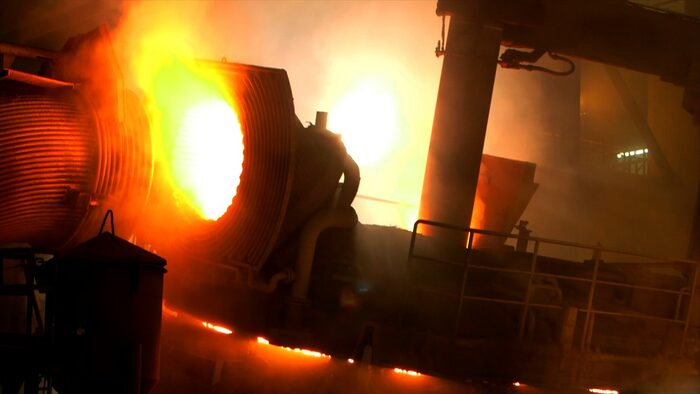|
Landeshauptstadt Dresden - www.dresden.de https://www.dresden.de/en/business/tomorrow-s-home/news/2024/003-citadel.php 24.06.2024 16:20:25 Uhr 19.04.2025 09:25:44 Uhr |
|
Dresden coordinates basic research for low-C02 heating in industry

14 research institutions and companies from seven European countries want to decarbonize energy-intensive industries in the CITADEL project. The key: heating systems that run on green electricity rather than fossil fuels. Five demonstration plants for practical findings have been put into operation for this purpose. The Helmholtz-Zentrum Dresden-Rossendorf is coordinating the project.
Industry is one of the largest global emitters of C02. Particularly in the production of steel and glass at high temperatures, large quantities of this climate-damaging gas are released into the atmosphere. The reason: the high-temperature furnaces used are powered by fossil fuels. Dr. Sven Eckert, Head of the Magnetohydrodynamics Department at the Institute of Fluid Dynamics at the HZDR, sees a need for action: "In order to achieve the climate targets and combat global warming, we need to initiate an enormous technical transformation process in this industrial sector."
The CITADEL project, which Eckert is coordinating, will be an important driving force. Together with 13 other research institutes and companies, the HZDR is looking for solutions to switch from fossil-fuelled to electrically powered heating processes. The use of microwave, plasma, induction or resistance heating is conceivable. "At the end of this process, we must have an industry that is essentially based on greenhouse gas-neutral energy sources," says Eckert, setting out the goal.
The focus of the research is on five industrial processes: The production of refractory materials, glass, steel and copper as well as the recycling of concrete. European companies have been won as cooperation partners for each of these five applications. Demonstration plants are being built at their sites to illustrate the performance of electric heating technologies in a real industrial environment. At the same time, the researchers are investigating how the electrified processes can be integrated into future energy supply systems. After all, the green transformation will only have the desired effect if sufficient green electricity is available - at all times and at reasonable cost.






